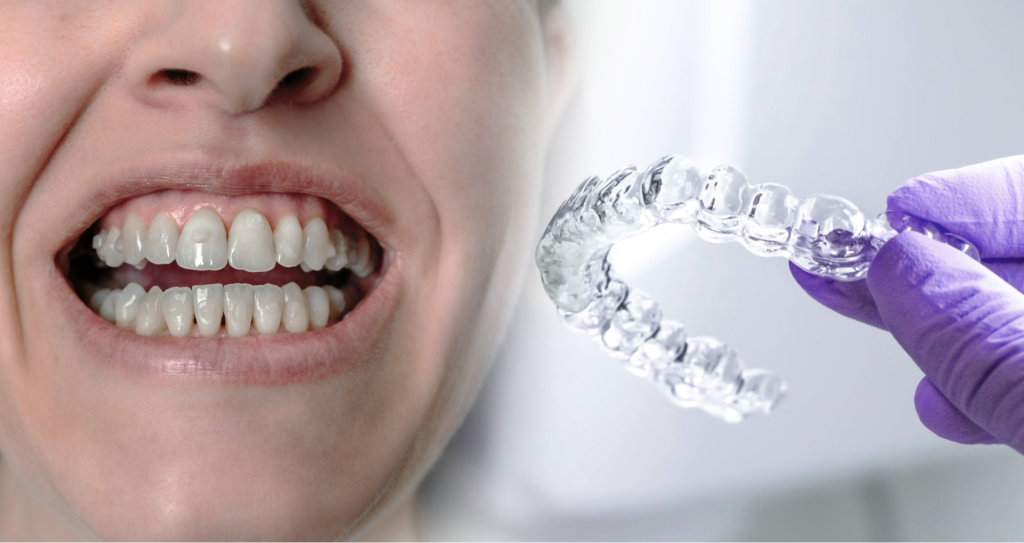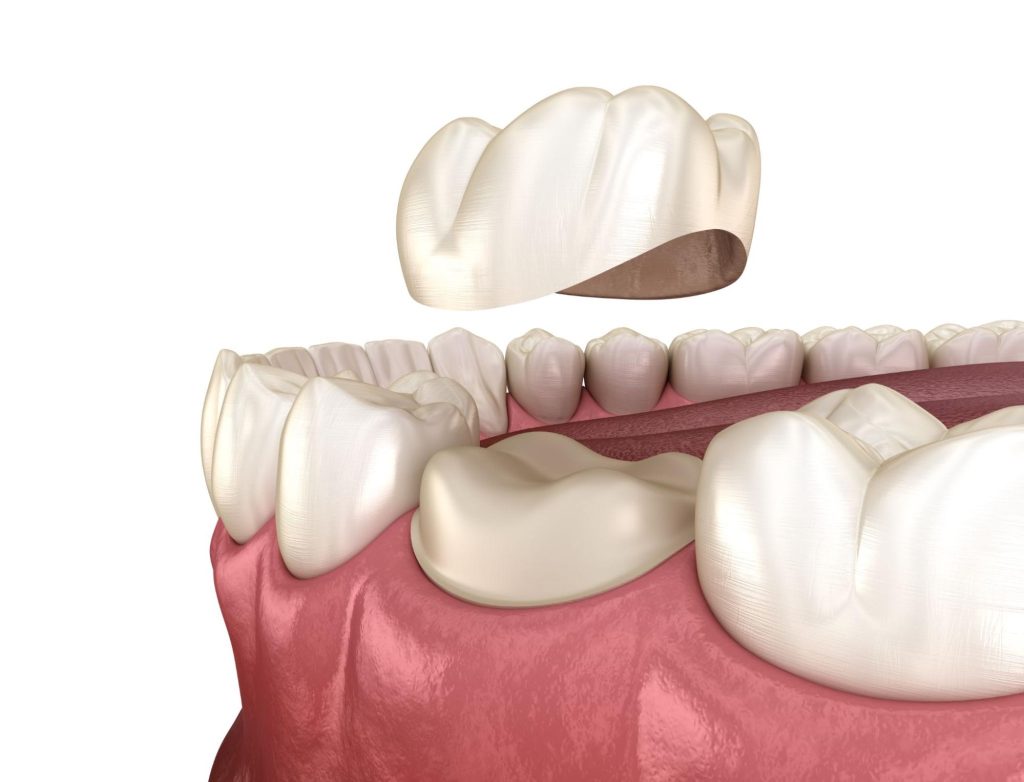We all know brushing is an integral part of maintaining oral health. But do we give flossing the same importance as brushing twice daily?
Whole mouth health is not only about taking care of your teeth. It also includes your gums, tongue and surrounding tissues and structures, even your lips, jawbone, and facial profile. Any oral issue can have an impact on your oral and overall health. This is why issues like bleeding gums should not be ignored.
If your gums bleed when flossing, brushing, or even eating, it is important to recognise that this is not normal. Consistent bleeding can be an indication of an underlying problem that needs to be identified and treated promptly. Ignoring bleeding gums can lead to further complications or damage to your teeth and gums. To understand why your gums bleed, learn when a little bleeding is normal, and how it can affect your oral health in our blog. Taking proactive steps to address the issue can help you maintain a healthy smile and prevent potential complications down the line
Understanding Gum Health
Gums play a central role in protecting and supporting our teeth. They serve as a protective barrier around the teeth, helping to hold them in place and support their stability within the jawbone. Gums provide a seal around the base of each tooth, preventing bacteria and debris from penetrating the deeper structures of the teeth and gums.
Healthy gums are firm, pink, and snugly fit around the teeth. They act as a cushion, absorbing the forces generated during biting and chewing, which helps distribute the pressure evenly across the teeth and jawbone. When gums are healthy, they provide a tight seal that helps prevent bacteria from reaching the bone, thus preserving its integrity. Think of your gums as a locked door, holding back bacteria while it’s cleaned from your teeth with regular brushing and flossing. Once there is a crack in that door, bacteria gains entry, penetrating the gum line to attack and weaken the structure protecting the teeth.
As the bacteria accumulate around the gum line, it releases toxins which inflame the gums, leading to swelling and bleeding. This is known as plaque buildup, which can lead to the first stage of gum disease, gingivitis. When it hardens, it turns into tartar and can progress into periodontitis, the advanced stage of gum disease.
Gum disease is a very common disease globally, even though it is preventable and can be easily treated in the initial stages. Over one in three Australian adults have moderate to severe gum disease and the leading cause is poor oral health and tooth decay. Understanding gum health, reasons behind bleeding gums and prevention can help better protect you against poor oral health and the ensuing health problems that come with it.
Reasons for Bleeding Gums when Flossing
A little bit of bleeding is normal when you begin to floss or experience side effects from hormonal changes. But consistent bleeding during flossing or brushing should be checked out by your dentist without delay.
Some of the reasons for bleeding gums when flossing include:
- Bacterial Buildup
When plaque, a sticky film containing bacteria, accumulates on the teeth, it can irritate the gums and lead to inflammation. This inflammation can cause the gums to become tender and bleed easily, especially when pressure is applied during flossing. Regular flossing helps remove plaque and bacteria between the teeth and along the gumline, reducing the risk of bacterial buildup and subsequent gum bleeding.
- Gum Disease
Gum or periodontal disease is an infection of the gums and supporting structures of the teeth. The early stage of gum disease, gingivitis, is characterised by red, swollen, and bleeding gums. When left untreated, gingivitis can progress to periodontitis, where the infection spreads deeper into the gums and can lead to bone and tooth loss. Regular flossing, in combination with brushing and professional dental care, is vital for preventing and treating gum disease and reducing bleeding gums.
- Incorrect Flossing or Brushing Technique
Aggressive flossing or brushing, using excessive force or a sawing motion, can traumatise the gums, leading to bleeding and tenderness. The correct flossing technique involves sliding the floss gently between the teeth and along the gumline, without snapping or forcing it. Similarly, brushing should be done with a soft-bristled toothbrush in a circular or gentle back-and-forth motion, targeting both the teeth and the gumline.
- Badly Fitted Appliances
Ill-fitting dental appliances, such as dentures, braces, or retainers, can contribute to bleeding gums. If these appliances are not fitted properly, they can rub against the gums and irritate, leading to gum bleeding.
- Hormonal Changes
Hormonal changes, particularly in women, can influence gum health and contribute to bleeding gums. During certain stages of life, such as pregnancy or menopause, hormonal fluctuations can make the gums more sensitive and prone to inflammation. This increased sensitivity can cause the gums to bleed during flossing or brushing. It’s essential to maintain good oral hygiene practices and inform your dentist about any hormonal changes to ensure appropriate care and management of gum health.
- Certain Diseases and Medications
Medical conditions or diseases such as diabetes, cancer and infections may cause your gums to bleed. They weaken the immune system, making you more susceptible to gum disease and tooth decay. Some medications or drugs can also make your gums bleed, and therefore, it is advisable to consult a certified health professional to determine if the bleeding is caused by the medications.
- Vitamin Deficiency
Vitamin deficiencies because of poor nutrition can cause gums to bleed. Vitamin A helps saliva production, B promotes wound healing, C helps in bone formation, and D controls inflammation. A balanced diet rich in fruits, vegetables, and nutrient-dense foods can help ensure an adequate intake of these vitamins and support gum health.
Tips to Prevent or Address Bleeding Gums During Flossing
There are some precautions and tips you can apply to prevent bleeding gums. They include:
Improving flossing technique
Ensure you are using the correct flossing technique given above to prevent bleeding during flossing. When you initially start flossing, you may experience some bleeding. But this usually stops when you floss regularly. Regular bleeding when flossing may be a cause for concern, and you need to have a dental checkup where your dentist can remove the plaque buildup or run diagnostics to determine the cause. If you’re unsure about the proper technique, consult your dentist or dental hygienist, who can provide guidance and demonstrate the correct flossing technique.
Regular dental visits and professional cleaning
Your dentist can identify and address any underlying issues contributing to bleeding gums, such as gum disease or poor oral hygiene. At Mosman Fine Dental, we perform a comprehensive examination of your teeth and gums, clean hard-to-reach areas, removing plaque and tartar buildup. Professional cleaning helps eliminate bacterial buildup and reduces the risk of gum inflammation and bleeding. Routine dental visits also allow for early detection and intervention of gum-related issues that may arise.
Maintaining a healthy oral care routine
Being consistent with your oral hygiene, such as brushing and flossing daily and regular dental checkups are key to keeping your teeth and gums healthy. Personalised hygiene treatments, oral health care education and a healthy lifestyle will equip you with the tools for a healthy and lasting smile and prevention against most oral problems and diseases.
What should I do if my gums bleed when flossing?
If you’re experiencing constant gum bleeding when flossing, brushing, or eating, the first step is to consult a dentist to identify the reason behind the bleeding. Additionally, you can also:
- Learn and apply the correct flossing and brushing technique.
- Use a soft-bristled toothbrush to avoid teeth and gum abrasion.
- Ensure regular usage of a strong fluoride toothpaste and an antibacterial mouthwash.
- Get regular hygiene treatments and guidance from your dentist for using the correct tools and oral hygiene products.
- Always go for routine dental checkups and dental cleaning twice a year
- Maintain a balanced diet high in nutrients, adopt an active lifestyle and avoid smoking or tobacco products.
Gum Health Therapy at Mosman Fine Dental
Our friendly dentists can help you take care of your gums with a range of gum treatments tailored to your dental needs. From scaling and root planing to remove plaque, tartar and toxic bacteria from the gumline to gum grafts to fix gum recession and crown lengthening for decayed teeth beneath the gums, we strive to provide a bespoke treatment to restore your gum health. Book an appointment today.



